Off-market cash card traders say it straight: shoot first, judge later, and no one is wronged. Today, I will risk my life to expose some industry insider information. In 5,000 words, I will tell you the industry's black curtain, explain why cards are frozen, why people rent, lend, or sell their bank accounts, what telecom fraud is, and why team leaders get stepped on by sewing machines. I will also explain the types of dirty money.
Telecom fraud groups add victims as friends on various dating, matchmaking, and e-commerce platforms to carry out fraudulent activities in the name of dating, inducing victims to invest, commonly known as killing pig scams.
According to statistics, many victims in this situation are concerned about their reputation. Many people who are scammed do not report it, so they are called fine materials, and this behavior is also called fine chatting.
Everyone knows that ten years ago, I had a hot pot restaurant where a waiter named Xiao Yuan called me Uncle Liu. He couldn't afford to eat or pay his credit card bills. I often helped him out. Later, in 2018, he went out to start a basketball betting project by himself, which I didn't understand, and suddenly made 30 million. Everyone began calling him Yuan Zong.
But he scammed everyone around him, including childhood friends, colleagues, and cousins.
Yuan Zong bought three Porsche Cayennes, switching between S and B models, and started calling me brother instead of Liu Ge, saying, 'You poor people, I don't want to play with you. I want to make a billion to become big and strong again.'
He bought many apartments for rent, and a storefront near the high-speed rail station for 9 million because the salesperson looked good, paying in full immediately. That night, the salesperson left with him.
When Uncle Liu started being a legitimate trader in 2020, he mocked and looked down on me, saying, 'How much can you earn?' So he invested in FIL, Chia, and BZZ mining machines, mortgaged his property, and took high-interest loans to go all in.
Not long after, he lost everything, with zero liquidity, and continued to borrow at high interest. Before long, while he was with his young girlfriend in an apartment, high-interest loan workers followed him.
All debts began to explode, and he started calling me big brother, wanting to learn how to be a trader and asking for resources. So I introduced him to a few peers, and Yuan Zong officially entered the off-market trading industry, knowing nothing but rushing into trouble. Later, Yuan Zong hid for about a year before being sentenced to three years (graduating from sewing machine university at the end of this year), while his younger brother was sentenced to three and a half years, and his partners to more than four years. The legendary story behind this will be discussed later.
Today, let's take the 'dirty money' that traders and retail investors encounter when selling digital assets as an example. You need to know what type of environment you are selling your assets in to clearly understand why this industry is so dangerous. Many newbies who criticize me say they have made X amount without their cards being frozen; they are just lucky.
You walk through a powder magazine with a torch and come out unscathed, but I still think you are a fool.
How are these victims related to retail investors, traders, and team leaders? Let me explain in detail. Don't think that selling digital currency at an exchange means your card is safe; most of them are this type of funds.
Let me tell you how Yuan Zong became a team leader and then got stepped on!
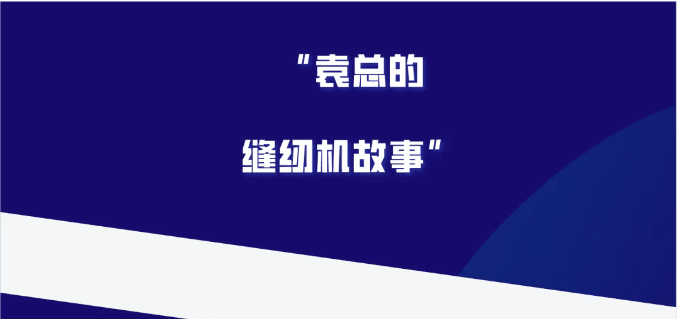
Kawa, at the bottom of the food chain, mostly comes from rural areas, lacking skills, and even having trouble eating. They find card traders (card farmers) for part-time work, using a card for 2,000-3,000 yuan for a day, unconditionally cooperating with traders and having meals provided. Kawa do not know the traders and have never met them.
The operator appears: online connection to the card trader, the trader remotely controls the connection between Kawa and the operator offline, testing the card's limit and status, and registering on a virtual currency exchange. The operator pays the trader about 8,500 yuan per person, and the trader gives Kawa 2,000-3,000, keeping the profit.
Confiscating Kawa's phones and bank cards.
Personnel configuration: 4 security guards, 1 driver, 1 operator, and 1 security guard controls 2 Kawa.
Material suppliers (telecom fraudsters): After the operator confirms that the card works fine, they directly transfer the telecom fraud funds to Kawa's account, and the operator starts buying USDT at a certain exchange, looking for unverified merchants or third-party payments, immediately transferring the funds to the trader, which can also be a cooperating trader, and then returning the USDT to the material supplier.
The commission here is 10-15%. If it's 1 million, the operator makes a profit of 100,000, then deducts the trader's fees, security wages, and daily expenses.
As long as you have enough cards, the funds from the material supplier will continuously flow into Kawa's account like a river.
Also, cooperating with offline traders, off-market traders collect cash, and Kawa withdraws cash and hands it to the traders. Of course, there are many processes in between (99% of off-market cash traders wash the money like this).
Do you see clearly now? Why you, a retail investor, would have your card frozen and what connection you have with these criminal groups?
The intermediary channel is the exchange traders; 80% of the funds from the exchange traders are of this type. Those who say the funds are safe are just victims who haven't reported it yet.
Traders receive this type of funds and then post orders to collect USDT. At this time, when you, a retail investor, sell your digital currency, the trader will transfer this type of funds to you. Don't think it's a small chance to get this type of funds; the entire exchange's liquidity pool consists of these funds. How can you avoid it?
With such a large scale at the exchange, why don't they dare to open a trading area with no reason for freezing and compensation? Because as soon as they do, the trading volume might truly drop to zero, and users will run away.
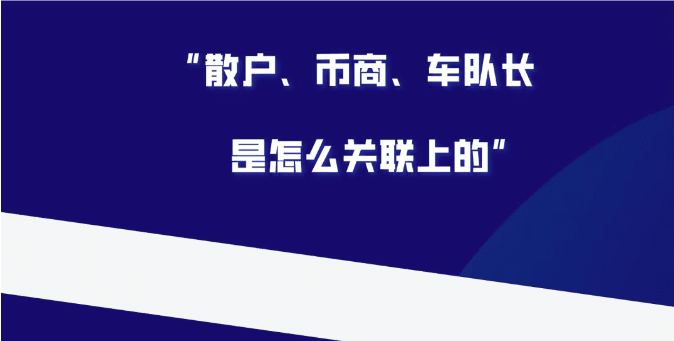
Why would those Kawa sell their bank cards for a mere 2,000 yuan to cooperate with the operators in money laundering?
Because Kawa is at the bottom of the food chain. Once something goes wrong, they are the first to be stepped on, and they will definitely be stepped on. They can't even afford to eat; what do they fear? This is their psychology.
The second type is resistance from the bottom. A Kawa can only be used for a day, and once used, they are discarded. They also know their fate, and then they are taken away.
Therefore, the consumption is huge. They have a mechanism where they get a reward of 500 yuan for bringing in a participant, essentially inviting their friends to join in.
They see the operators enjoying their lives while they can't even afford a phone, leading to a psychological gap, so once they are full, they consider how to resist.
So a few of them discussed running away.
How to run? After the material supplier transfers hundreds of thousands to Kawa's account, the operator buys USDT. There is a time gap here, and the operator may not be able to buy immediately, so at this moment, Kawa continuously thinks of ways to escape and then report the account to the bank.
This leads to a battle of wits; sometimes the operator fails to buy USDT in time, and the security needs to keep an eye on these people to prevent them from running away, even sleeping while hugging Kawa. Their phones are confiscated, and they can't sleep at night, directly staying awake with their eyes open, while the security needs to sleep.
Eventually, they have to sleep with Kawa. If they are negligent and Kawa escapes, they can never be found again.
Later, their solution is to drive several vans to remote mountains to spend the night. Even if Kawa escapes, they can't get out of the mountains.
In the mountains, Kawa cannot escape, so they prepared chili water. The moment they receive the funds from the material supplier, they spray it directly in the security's face and then scatter to escape.
If one escapes, they get to eat meat.
This is an extremely inhumane industry where everyone is sinister. Kawa is at the bottom of the food chain; they have lost their humanity because survival is at stake. They know they will definitely end up inside in half a month, but what can they do?
Just like in famine years, they know that eating soil can kill them, but they still eat it. Those brave enough to resist, Kawa included.
Those with psychological resilience, when pressed, will tell their uncle that the funds entered their account due to online gambling withdrawals or loan transfers. No more than 5% can withstand it. I have seen people who went in five times without being held accountable; they come out and continue to run numbers.
So, when you received dirty money and told your uncle it was loan transfers, he felt offended; beating you is lenient.
Uncle Liu writes about the most realistic society he has seen. These things are all practical knowledge that the entire internet lacks. When you, a retail investor, sell USDT at an exchange, you are actually participating in the entire underworld. Of course, you come as a pawn, as you care about your reputation. Your card is a salary card, a mortgage card; you need to unfreeze it to continue living, while your opponents, they are desperate people. Card freezes? They don't care.
Only you come to take over, and you end up footing the bill for all telecom fraud.
Only by knowing these things can you understand why your card was frozen.
It's not enough to just audit the trading volume of traders.
It's not enough to just look at the registration time of traders.
It's not enough to only consider the success rate of traders.
What you see are just those half-baked bloggers teaching you useless nonsense.
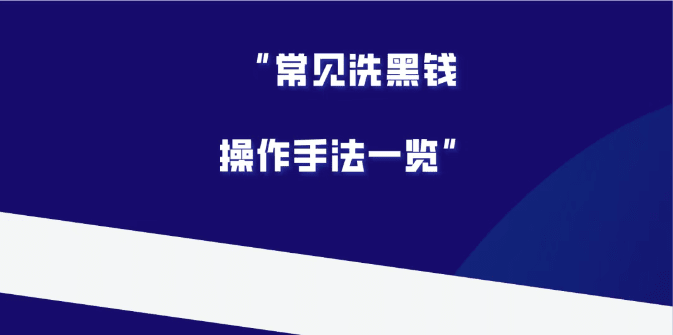
Stablecoins are just one way to temporarily convert dirty money into a safe medium. There are many other methods to defraud someone's bank account. We ordinary people must be vigilant, with common methods including loan laundering, offline part-time tasks as procurement, selling phones on second-hand markets (high-value items), and offline实体老板订货退款骗局等,骗子的目的就一个,骗取你的银行账户使用权。
The victim's cash used to be collected by your Didi ride, but now many are actually collected by drones, which means that Kawa or the victims can no longer see the team leaders.
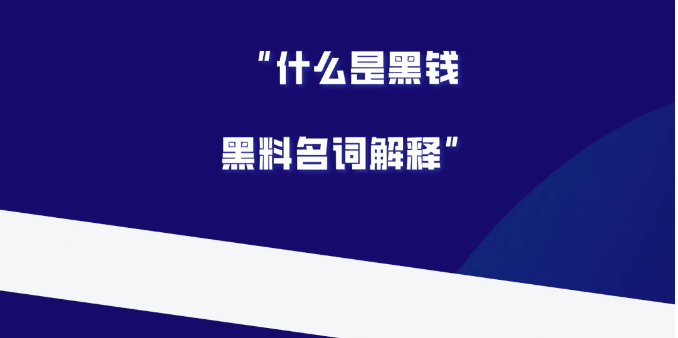
Three black types!
This type of funds roughly has five categories. The first involves impersonating public security and judicial authorities to commit fraud. If it's just a persona, they will claim to be military personnel and engage in scams under the guise of dating, which belongs to the fine chat type and not the three black types.
The second type involves impersonating superiors, where you often receive calls like, 'Xiao Li, come to my office,' or 'Guess who I am,' impersonating leaders to commit fraud.
The third type involves financial orders, such as impersonating the boss and requesting financial transfers under the guise of paying project fees, goods payments, deposits, or bidding funds.
The fourth type involves obtaining payment information through high-tech methods such as card cloning, phishing websites, and fake base stations, also referred to as technology fraud.
The fifth type is slightly more niche and can also be considered a public security type, with killing pig tactics similar to those domestically, but targeting overseas Chinese victims, such as students abroad.
High-tech!
Also called AI funds, impersonating the three black types belongs to the funds above, while impersonating friends and family belongs to the reporting materials or the mixed types below.
Minor three black!
A type of fraud where merchants are persuaded to transfer funds to purchase materials under the pretense of procuring supplies, usually involving impersonating organizations, procuring items like boxed meals, red wine, and building materials, which will also lead to immediate enforcement; there are people impersonating women and children's health hospitals, health insurance bureaus, management bureaus, etc., which also fall under the three black types.
Reporting materials, mixed +
1. Impersonating friends, family, teachers, doctors, or children to commit fraud.
2. Impersonating friends to request help with purchasing tickets under the guise of paying for goods.
3. Engaging in fraudulent activities on social media to sell concert tickets.
4. Charging training fees, impersonating teachers to collect tuition fees, and charging for driver's licenses.
5. Engaging in fraud with virtual items and games, involving small amounts and often being caught quickly.
6. Engaging in fraud under the guise of cross-border e-commerce, agency operations, etc., with longer cycles.
7. Impersonating celebrities or related personnel, lawyers, agents, etc., with longer cycles. This is also why many retail investors receive these funds only months later before they are frozen.
8. Committing fraud under the guise of currency exchange, generally involving larger amounts, with longer time cycles, and many incidents turning into social news.
9. Many new types of scams have not yet become widespread in the industry.
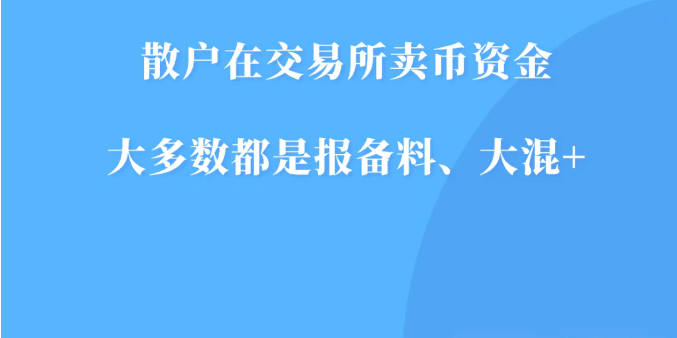
Look closely, the funds of exchange traders are not white capital; they are funds constantly circulating within this circle. The only difference is whether the traders are aware of it or intentionally participate.
The consequence of traders being unaware is just that they end up freezing their cards along with you.
Retail investors are relatively safe. Those who criticize me claim they haven't had their cards frozen for half a year; your uncle is just scaring the newbies. There is no benefit for me to scare you. Only when your card is frozen and you are in a panic will you consult me on how to unfreeze it, which might allow me to charge you a consultation fee. Therefore, what we must learn is what type of funds are involved in your card.
Some fans' coins were frozen two years after selling; what kind of material is that?
Funds from Ponzi schemes: The classification of funds in Ponzi schemes is lower than the mixed funds above. It refers to the money collected on the last day, which ultimately belongs to the final victims, who basically need to report to the police. This is also applicable to those who take over, but the last day's funds are generally not accepted by ordinary teams; they must be handled directly by professionals. They only need to ensure that the funds won't be frozen on that day.
Funds from collapsed Ponzi schemes: This refers to the profits obtained by operators after the Ponzi scheme runs away. They will guarantee that your funds won't be frozen for 3-7 days, which is also handled by professional teams. This type generally goes through traders, and retail investors mostly receive this type of funds when selling USDT.
For example, the recent collapse of Xinkangjia is a Ponzi scheme. Many retail investors who sold coins at exchanges over the past two years will receive these Ponzi scheme funds, and tracing them will also lead to card freezes, while traders will definitely be batch-processed.
Standard mixed funds!
1. Fraud under the guise of Taobao refunds, including all types of refund-related traffic and P2P refunds, online shopping refunds, airline ticket refunds, etc.
2. Small loans: Anything related to credit checks, loans, credit cards, online loans, and guarantees affecting credit checks falls into this category.
However, those who are defrauded by insufficient loan flows do not count as part of this industry. Most of them are black funds that were directly deposited into your account. You may seem like a victim, but you are actually helping telecom fraudsters provide bank accounts.
Regular funds!
This is the type of fraud behavior that people often see, such as naked chat extortion, where victims are lured into video naked chats, obtaining contact lists for extortion, and individual laundering, as well as using sexual benefits groups, part-time jobs, etc., to lure victims into placing orders under the guise of tasks or earning commissions.
Fraud involving door-to-door solicitation for prostitution, under the guise of transportation fees, deposits, or pre-paid funds, also falls into this category.
Intimate chat fraud:
Intimate chat types that involve emotional cutting or investment cutting, where a gunman engages in one-on-one cutting. Those impersonating soldiers and similar personas also belong to this type and are not classified as the three black types. Victims reporting this is very rare; many are reluctant to report their 'boyfriend,' thinking he treats her too well and hasn't defrauded her, just that she failed to invest.
There was a victim who consulted me, and after explaining to her for half an hour that she was a victim of killing pig scams, she still didn't believe it. I reported her to the local police, and it took me four hours to convince her that she had been scammed.
She finally accepted reality and was still a wealthy woman driving a Porsche in Wuhan.
Regional funds!
Investment scams generally involve groups cutting investors, usually using risk-return projects as cutting products, with cycles of 3-7-15 days for harvesting. Short Ponzi schemes have cycles of 30-45 days, similar to regional types, while long Ponzi schemes have cycles of 3-6 months, using principal-protected investment projects as cutting products, with many years of history, such as MMM, E-rent treasure, etc.
Spinach funds!
Many so-called reputable 'regular' platforms.
These are the types of funds that most retail investors encounter at exchanges. When you sell USDT, they are basically these types of funds. I have no benefit in scaring you.
This is the information on industry jargon. No one on the internet tells you this. Exposing it is to let everyone close their pits. Never let strangers transfer money to you; it's very likely that a small amount of money entering your account could ruin your life.
Anti-fraud is not as simple as using a few slogans; it requires delving into the enemy's core, understanding their routines, and then dismantling them. If your card is frozen and you don't even know the nature of your funds, how can you respond simply?
I went undercover for six months to obtain this information, even sending the team leader in to get first-hand information.
Follow me! Get more exciting content~

